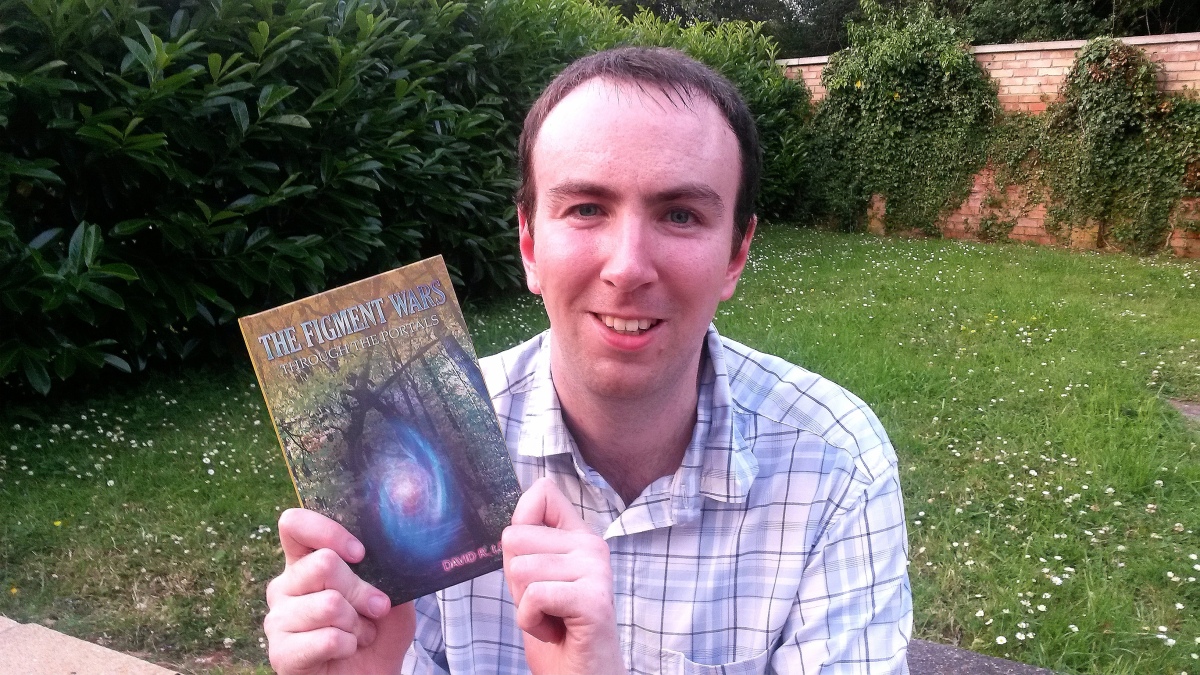I think I can say, quite honestly, I have one or two bad habits. My diet isn’t great, and I am prone to snacking (something I’m currently working on). However, I think I can say that currently my worst habit is Twitter. Not just checking it, but looking for things to challenge on it.
I usually reserve such things for my actor account. I have a separate account designed for promoting my books, and no matter how many times I tell myself I should log onto that one and post something about the Figment Wars, I seem to end up on my older account, looking for bigots who could do with taking down a peg or two.
Such interactions, while unpleasant, can serve a purpose. I maintain that they serve as an example for those who may be struggling with issues surrounding the many facets that make up our identities. If just one person sees that the bigots who wish to control and ultimately destroy others can and should be stood up to, then I consider that worthwhile. At the same time, we have to consider reach. I’ve had one or two tweets/interactions really kick off in terms of being seen by a great many people. However, when it comes to getting followers I’m still somewhat lacking. Such is online life. I certainly applaud those with a huge number of followers who chose to stand up to the trolls, bullies and bigots when they could just ignore them. Being realistic though, my follower count can certainly not be counted as ‘huge’.
Then we come to the matter of book promotion. I seem to have fallen into the trap of cultivating an author account that is, by and large, followed by other authors. All of us clamouring for sales, very few of us actually buying each other’s books. If you’ve come to this blog looking for marketing advice, you’ve come to the wrong person. I’ve never made a secret of the fact that the intricacies of marketing elude me. Even so, I often dance with the idea of packing in my author Twitter account. It doesn’t seem to have brought me much in the way of sales, so why keep it?
Twitter itself has, since a certain individual took over, just become worse. Let us not try to pretend it was any kind of online paradise beforehand. Such is the nature of human communication on such a large scale. There’s always going to be vast swathes of people who rely on anonymity to get away with spreading bile. What they get out of it, I do not know. Frankly I shudder to think. I just thank my lucky stars that I’m not them, so steeped in hatred and bigotry that they see entire demographics of people as targets. Why should I give them even a second of my time? Is standing up to their rancour ultimately futile? Perhaps so, but as I said, if one person who’s desperately struggling to know themselves sees what we do online and takes heart from it, it’s worth it.
Lockdown has to take some of the blame. During the various lockdowns our entire life was transferred online. Speaking personally, I believe I may still have some level of dependence on interacting with others purely by virtual means. This isn’t to say I’ve become a recluse, but I do still find myself reaching for my phone to scroll Twitter more than is perhaps necessary. This is one bad habit I am working on, and I can only imagine it will ultimately be beneficial to my mental health.
We keep hearing reports of the demise of Twitter every time that particular individual announces or does something that just makes us all, at best, cringe. In the end, I imagine Twitter will cease to be what it originally was. I find myself almost constantly on the verge of deleting both accounts. Perhaps, after a gradual decrease in my use of it, I may just delete them.
There are people out there who know a great deal more about what’s going on financially with Twitter than me. People who can analyse the markets, the algorithms and all that. I’m not here to make any kind of predictions based on that. I’m just saying that the Bird App doesn’t hold anywhere near as much wonder and opportunity as it once did. Somebody has spent a vast sum of money to make a once great resource steadily worse and worse, until it is completely unusable. Just goes to show that money can’t buy sense. Far from paying for a blue tick, the efforts of that particular individual have made me regard Twitter with an alternating sense of apathy and disgust.
So long, Twitter.



